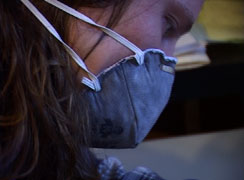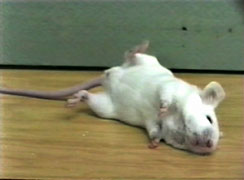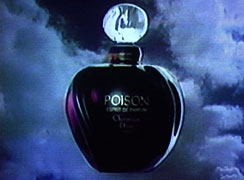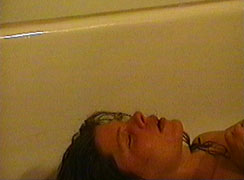Home / / Photo / Sculptures / Curatorial Projects / Bio / Contact
![]()

![]()

![]()

![]()

![]()

![]()

![]()

![]()

![]()

![]()
< back > installation view
![]() > trailer >
reviews
> trailer >
reviews
![]()
Chemical exposures are endemic to our modern industrial society. The concept and effects of low level chemical exposures have far reaching implications for medicine, public health, and environmental policy. Different medical paradigms of the definition, diagnosis and treatment of the disease further fuel controversy between medical fields, the chemical industry, employers and insurance companies.
MULTIPLE CHEMICAL SENSITIVITY (MCS) or Environmental Illness (EI) is a chronic condition caused by exposure to synthetic, petroleum-derived chemicals found in products such as pesticides, perfume, building materials, carpets, paint, exhaust, cleaners, tobacco smoke, and food additives.
MCS/EI affects multiple organ systems (respiratory, digestive, neurological, musculoskeletal, reproductive) and commonly includes symptoms such as difficulty breathing and concentrating; migraines; loss of memory and coordination; dizziness; seizures; sore throats; abdominal pain; weakness and fatigue; joint and muscle pain; heart irregularities; chronic inflammation; unusual infections; anxiety; rashes and difficulty healing.
The hallmark of MCS/EI is extreme sensitivity to odors, but many sufferers also develop increased sensitivity to noise, light (photosensitivity), touch (nerve sensitivity), and electromagnetic fields. Symptoms tend to worsen with exposures and decrease or resolve when incitants are removed.
Acute or long-term chemical injury is generally understood to be the cause of sensitization, though individual susceptibility is believed to play a role. Sensitized people cannot tolerate most medications for symptom relief, as pharmaceutical chemicals add more strain to an already overloaded/damaged detoxification system, usually causing an increase in both symptoms and sensitivity levels. There is no known cure for MCS/EI, and the most effective treatment found to date is avoidance of toxic chemicals, an increasingly difficult task in today's world.
more information about MCS
http://www.ciin.org
http://chemicalsensitivityfoundation.org
http://www.mcsnyc.com
http://mcs-exchange.healingwell.com
http://www.mcsrr.org
http://www.noacceptablerisk.com
http://www.andersonlaboratories.com
http://www.infact.org
http://www.nospray.org
http://www.watoxics.org/pages/root.aspx
http://www.herc.org/news/ehp/fiedler.html
http://www.safer-world.org/d/krank/chronisch1.html
-